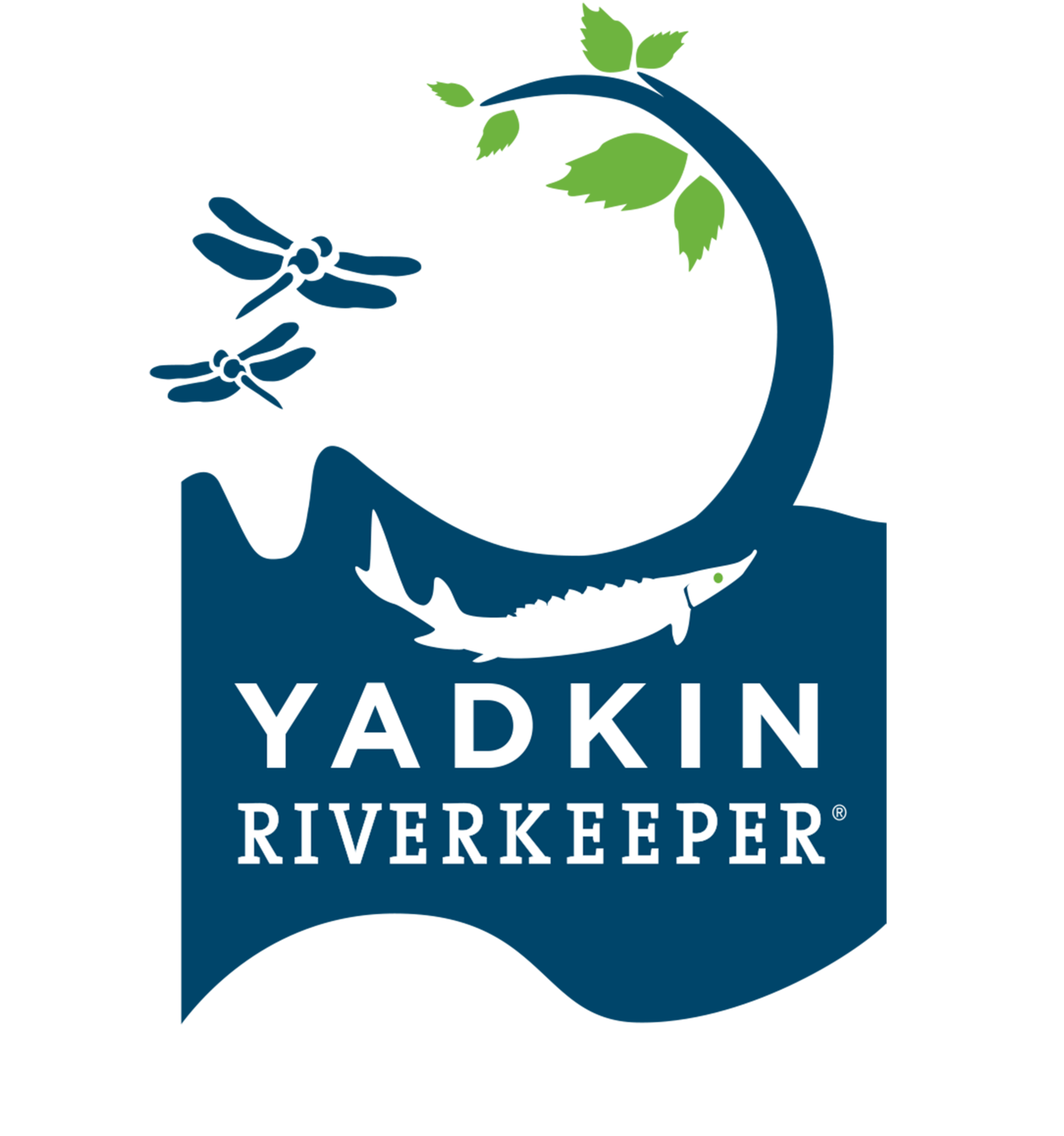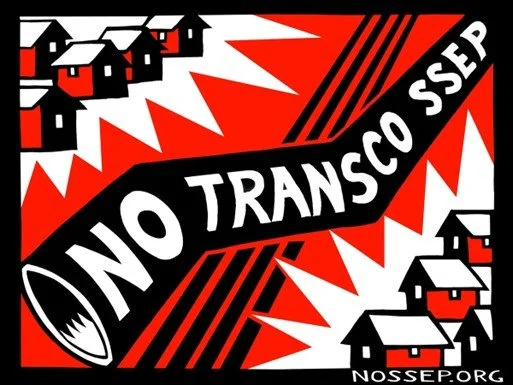By Nicole Eastman, Riverkeeper Assistant
Transco proposed an expansion to a natural gas pipeline in North Carolina and Virginia as part of the Southeast Supply Enhancement Project (SSEP). The SSEP includes a loop called the Salem Loop which will cross Davidson, Forsyth, and Guilford counties (visit this link to view its path). This pipeline would consist of a 42-inch diameter pipe, as large as a hula hoop, pumping fracked natural gas from Pennsylvania and West Virginia through Virginia and North Carolina to the southeast and even for export.
Among other environmental advocates, Yadkin Riverkeeper staff have serious concerns about the environmental and health impacts of this pipeline. The disruption of land as a result of pipeline construction, especially at stream crossings, will generate sediment pollution, leading to water quality degradation due to increased turbidity, nutrient, and bacteria levels. Transco would use dry-ditch stream crossings to construct the majority of the pipeline which releases a greater amount of sediment than if they used trenchless technologies. Although Transco plans to divert water in the streams to prevent sediment transfer downstream, dry-ditch crossings often release sediment during the installation and removal of the diversion structures. Diverting the water from the stream will also impact the macroinvertebrates, fish, and wildlife populations that rely on these water sources.
The Salem Loop would be located in Forsyth and Davidson Counties and cross six streams in the Yadkin River watershed: Reedy Creek, Little Brushy Fork, Brushy Fork, Spurgeon Creek, Mary Reich Creek, and Abbott’s Creek. The latter five streams are all tributaries to Thom-a-Lex Lake, the primary water source for the cities of Lexington and Thomasville since 1957. The utilities treating the water from the reservoir could face difficulties in filtering the water with high turbidity and sediment levels.
With high levels of E. coli reported during the Swim Guide season this year, Yadkin Riverkeeper is also concerned about the construction of the pipeline resulting in the transport of bacteria downstream. A study conducted by the USDA in Maryland determined stream bottom sediments can be reservoirs for bacteria including fecal bacteria such as E. coli for weeks to months. If the sediments are disturbed in several tributaries to Thom-A-Lex Lake, this increases the chance of contamination in the lake.
On September 4, Nicole Eastman, YRK’s Watershed Protection Specialist provided testimony at a public hearing held by the Division of Water Resources (DWR) in response to Transco’s Clean Water Act Section 401 Individual Water Quality Certification application. Over 20 people provided testimony in opposition to the pipeline and other advocates stressed the pipeline construction will provide jobs to mostly out of state contractors and the majority of the natural gas will not be used by impacted communities. Nicole expressed the risk to water quality and drinking water the SSEP pipeline presents in the Yadkin River watershed and asked DWR to deny the certification until the community concerns are met.
DWR is accepting written comments for Transco’s 401 certification application through this form for project No. 20240801 until 5pm on October 6.
The Town of Midway was the first to pass a resolution in opposition of the pipeline. Forsyth County Commissioners passed a similar resolution after Piedmont Environmental Alliance and the Sierra Club presented the implications of the project to the commissioners. Guilford County Commissioners passed a resolution requesting the Federal Energy Resource Commission for a more thorough analysis of the SSEP before granting permits. Yadkin Riverkeeper is supporting current organizing efforts by Appalachian Voices, Clean Water for NC, and the Sierra Club in Davidson County. Appalachian Voices is coordinating canvassing in Davidson County on September 27 and 28 to notify the community regarding the SSEP and its potential impacts. The YRK board will consider a formal resolution opposing the project at its Oct. 9 board meeting.
If you have any questions about the proposed pipeline, please contact nicole@yadkinriverkeeper.org.

